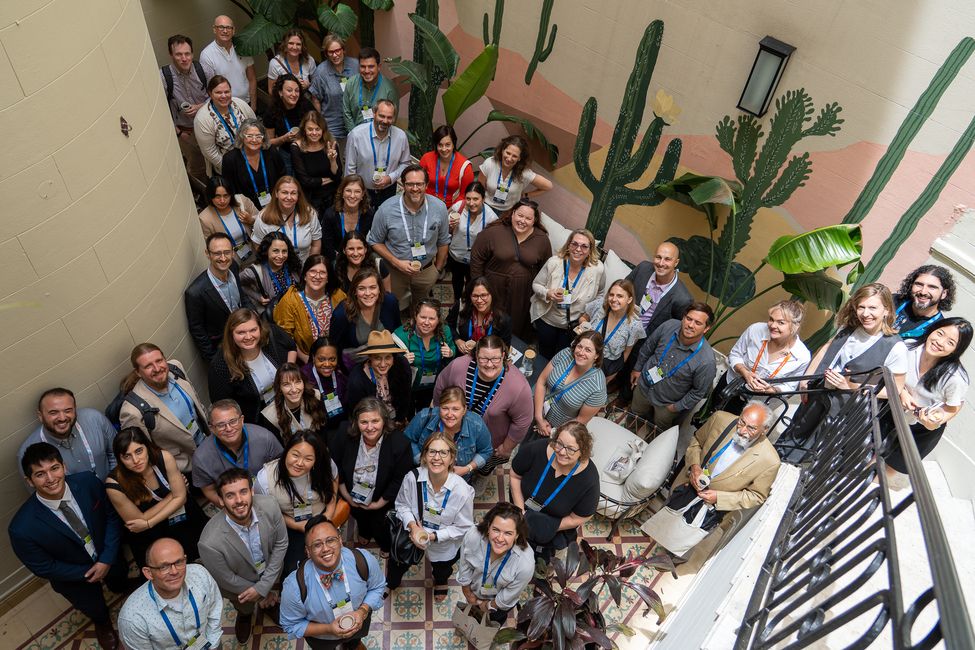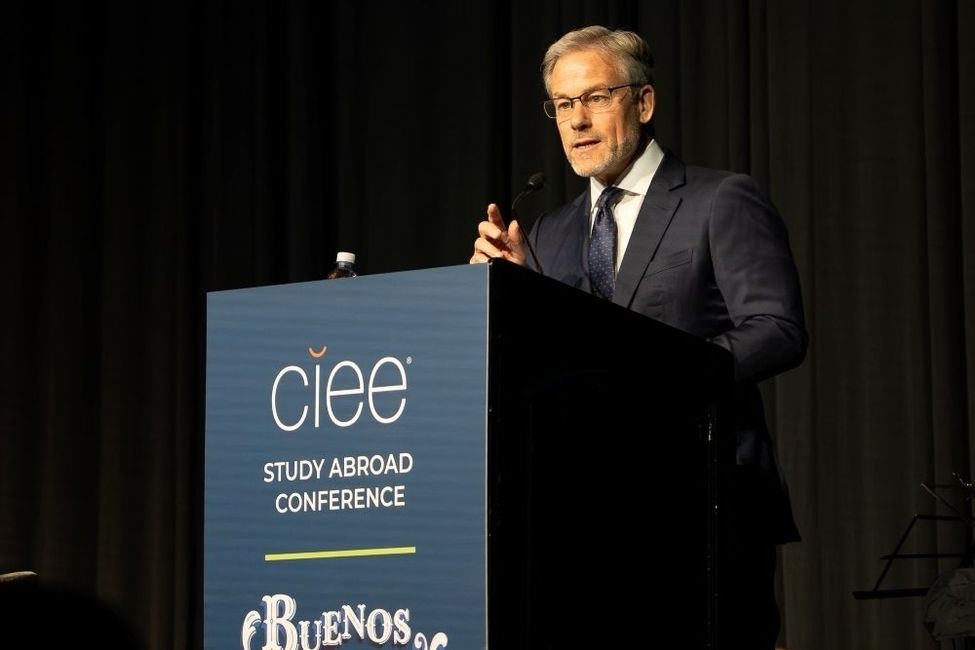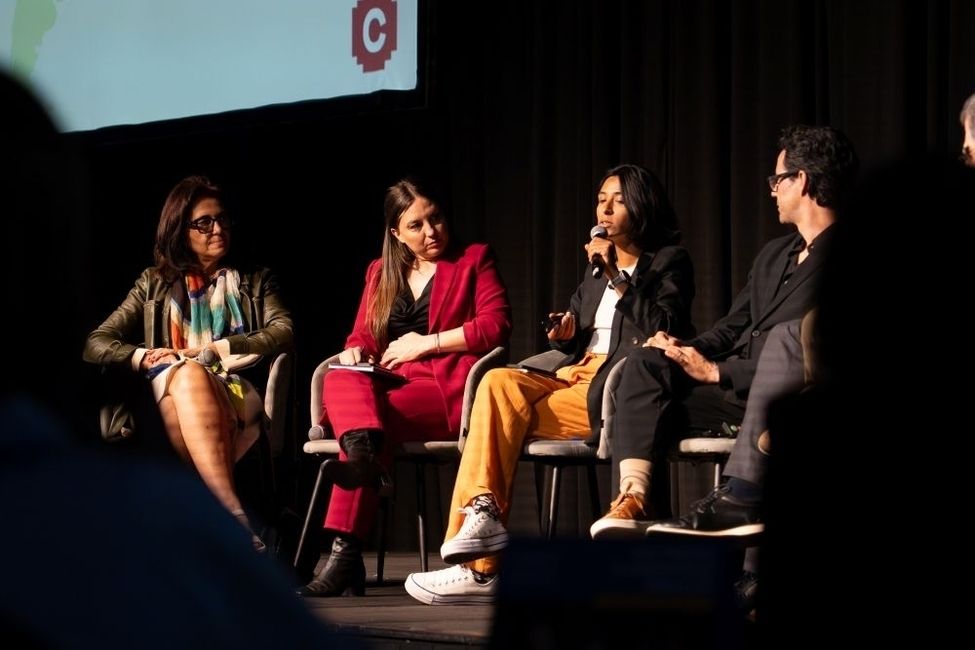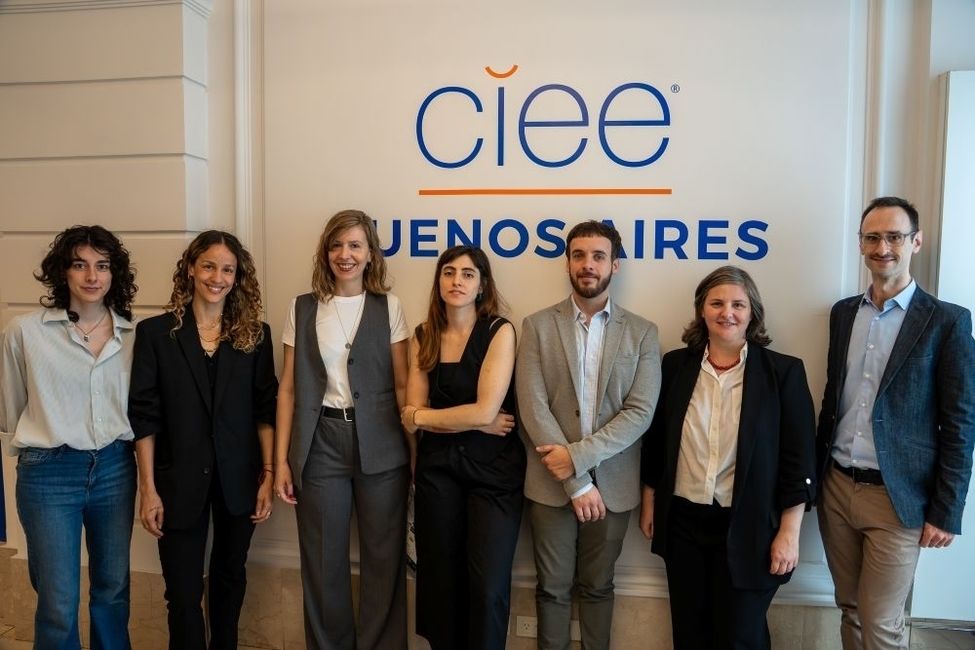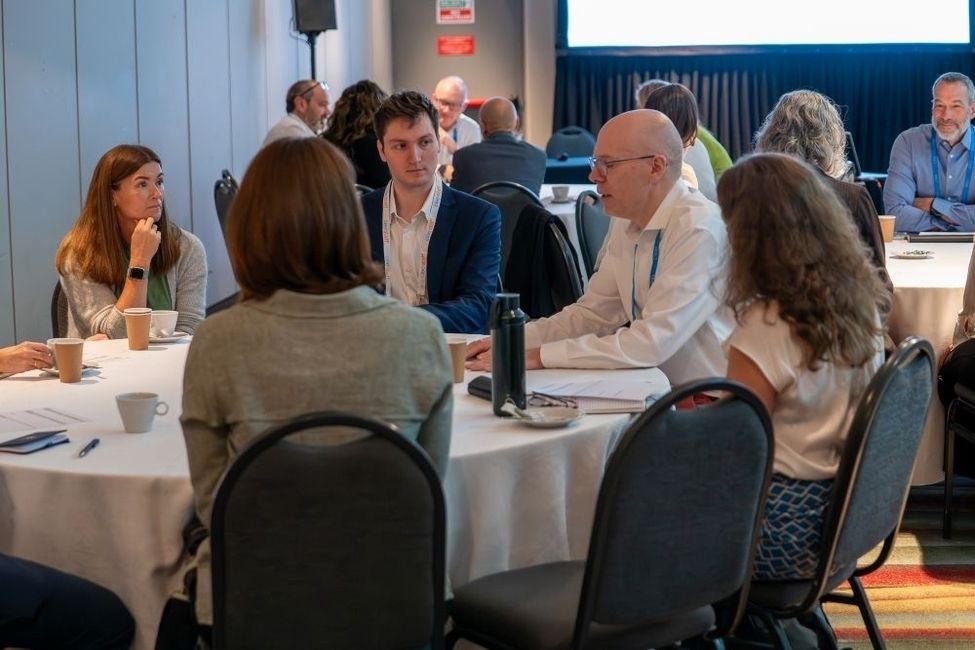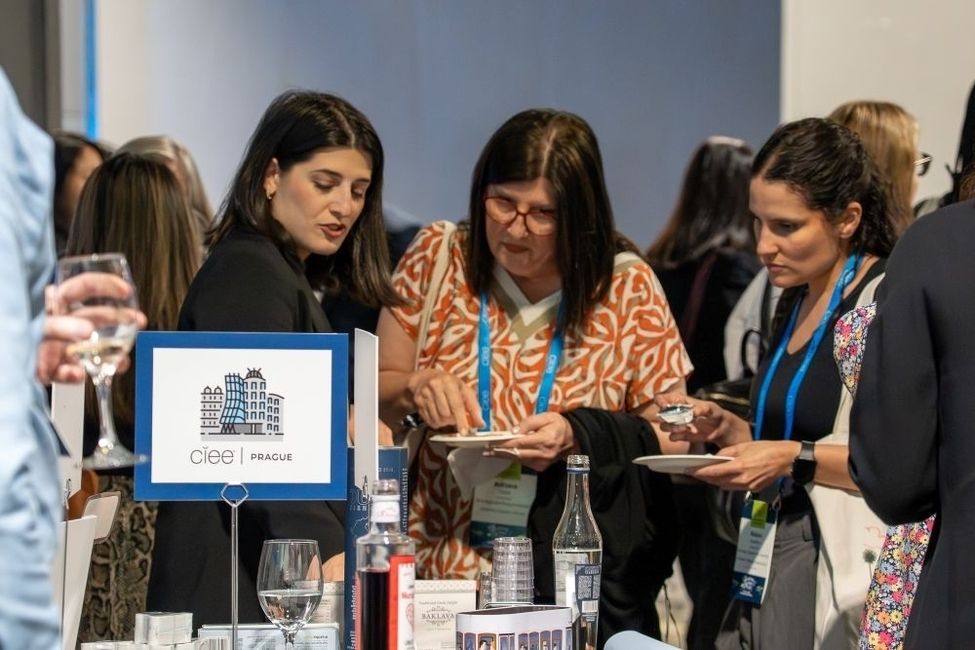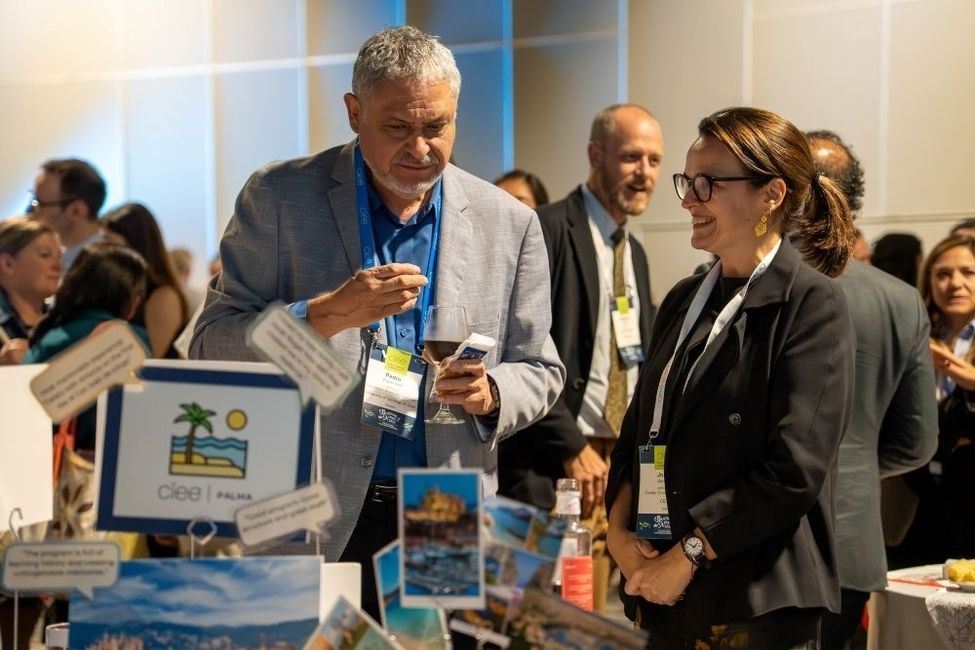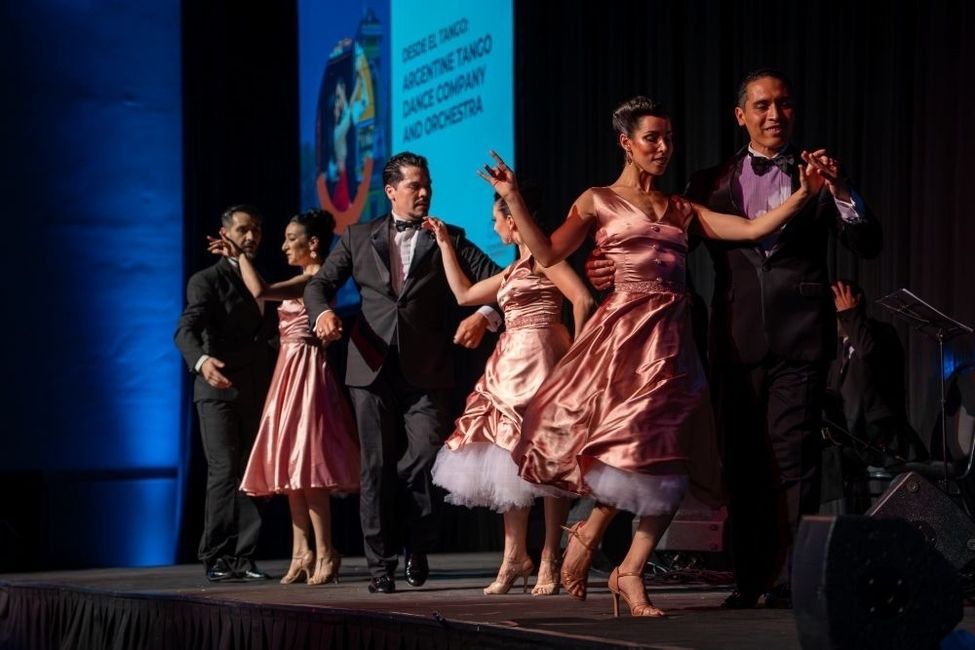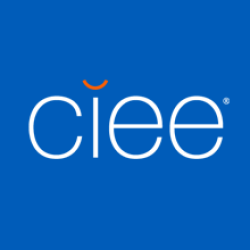78th Annual CIEE Study Abroad Conference - Day 1 Highlights
The 78th Annual Conference, focused on the theme on Leading Change in Study Abroad in Latin America, kicked off yesterday with an inspiring first day that brought together international educators and thought leaders to share ideas and best practices for expanding study abroad and internship opportunities in Latin America, and for strengthening collaboration between educational institutions, businesses, and government agencies in the region.
CIEE Buenos Aires Open House
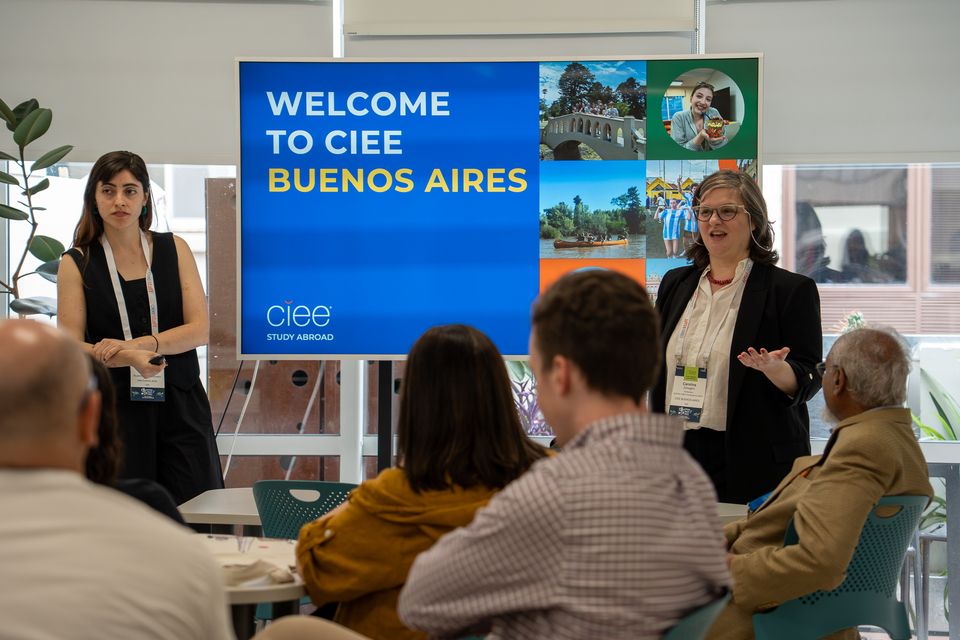
The afternoon began with an open house at the CIEE Buenos Aires Center, where guests explored classrooms, met dedicated on-site staff, and learned about the diverse academic and cultural programs offered in Argentina.
Pre-Conference Workshop: Leading Change Through Custom Programs
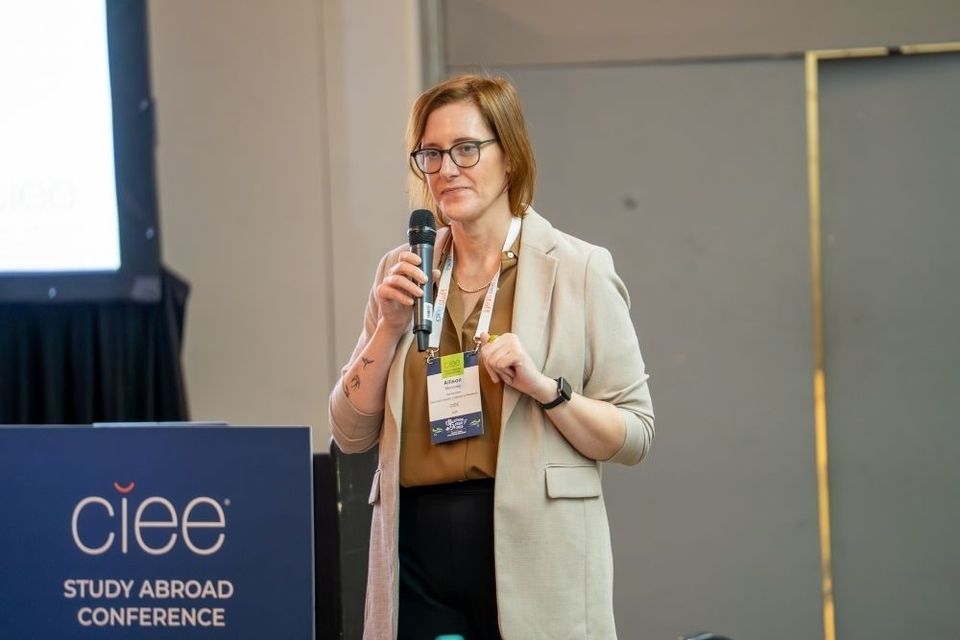
In the pre-conference workshop, Strategies for Leading Change: Custom Programs that Drive Student Success, presenters Allison Moroney, Executive Director, Institutional Relations, CIEE; Loren Intolubbe-Chmil, Assistant Teaching Professor, University of Colorado-Boulder; Nora Larkin, Director of Sales Operations, CIEE; Paul LePore, Senior Associate Dean, The College of Liberal Arts and Sciences, Arizona State University; Sara McKinnon, Director of Latin American, Caribbean, & Iberian Studies, University of Wisconsin-Madison; and Stacy Benjamin, Director of Special Programs, CIEE, shared actionable strategies for how global learning can support students “at risk” of not meeting key academic and professional milestones.
The session highlighted data-driven approaches to increasing student retention, employability, and economic mobility through customized study abroad experiences. Participants shared strategies for designing programs that meet institutional goals while expanding access and equity in global education.
Opening Plenary: The World by 2050 - Latin America and the Global Changes Ahead
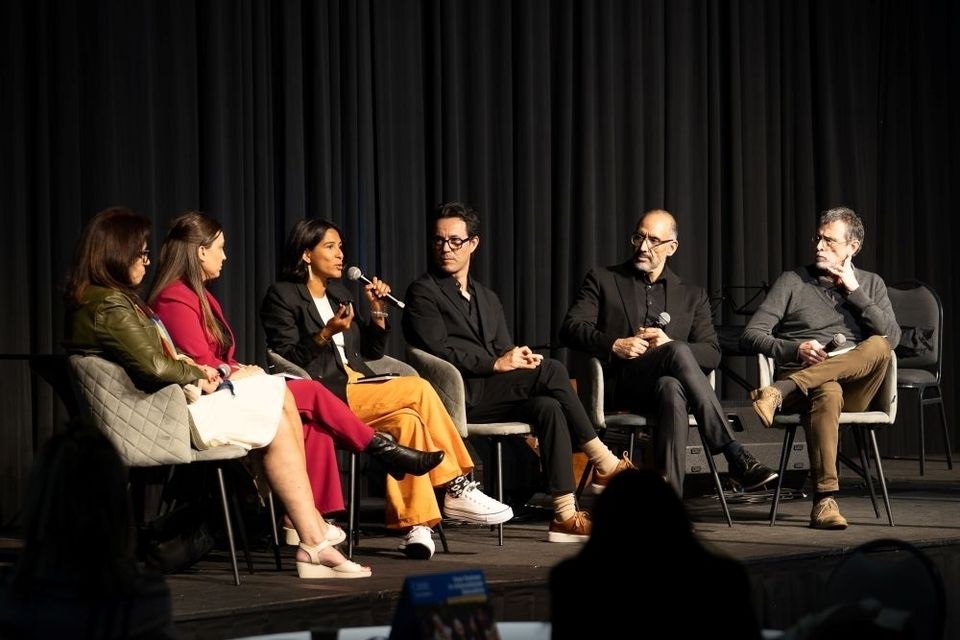
The conference began with the opening plenary featuring an engaging panel of Arachu Castro, Professor and Samuel Z. Stone Chair of Public Health in Latin America, Tulane University; Estefania Pozzo, Editor-in-Chief, Buenos Aires Herald; Inés Palacios, Founder, Fundamental; Jota Samper, Associate Professor; Co-Director, CEDaR, University of Colorado Boulder; Juan Pablo Pardo-Guerra, Professor; Associate Director, Latin American Studies, University of California San Diego; and Leo Rowland, Executive Director, Fulbright Commission Argentina.
The conversation examined how Latin America is poised to play a critical role in addressing global challenges—from clean energy transitions and food security to environmental conservation and cultural heritage preservation. Speakers emphasized the importance of experiential learning—through internships, service projects, and community engagement—in preparing students to understand and contribute to these global trends.
Juan Pablo Pardo-Guerra talked about how it can be hard to convince students to study abroad in Latin America. “Latin America is more or less fading away from the public consciousness in the United States,” he said. As a result, students are missing out on opportunities in an exciting region that is reinventing itself in a fundamental way.
"[Latin America] is reestablishing international geopolitical relations beyond the historical trends that defined and constrained it. It is creating hubs of innovation around critical industries, like, for example, climate tech that will be essential for dealing with the climate crisis, and it is a site of social and political innovations, from urban design all the way to voting processes, political participation and so forth. And this is all based on the grit and resilience of Latin America and Latin Americans.”
Estefania Pozzo talked about one quality of Latin America that cannot be overlooked in today’s climate. “Latin America has something fundamental in a context where geopolitical tensions are increasing,” she said. “We have peace here, a peaceful coexistence between states and societies, and that is marked by collaboration and friendliness, and that drives, of course, creativity and well-being.”
The panel talked about how Latin America is a world leader many areas, including green energy, biodiversity, and public health (the life expectancy in Chile and Costa Rica is higher than in the U.S.) Yet the United States is slow to recognize the contributions of Latin America in part because of language barriers and systemic devaluation of knowledge from the region.
Jota Samper talked about the importance of not looking at Latin America from a colonialist perspective, saying it’s important to see the region not as place of lacking, but instead as a place of learning. He spoke about a collaborative, community building project his students undertake in Colombia. “What the students really take out of this experience is the opportunity that Latin America is a place that had so much to offer,” he said. “There is a place where you could learn, where you could see things that work better. Healthcare works better, transportation systems sometimes work better…. So, we don't see it as a place to as extractive and to test our ideas, but as a place where we could learn from those ideas and bring them back to the U.S.”
Meet CIEE Reception
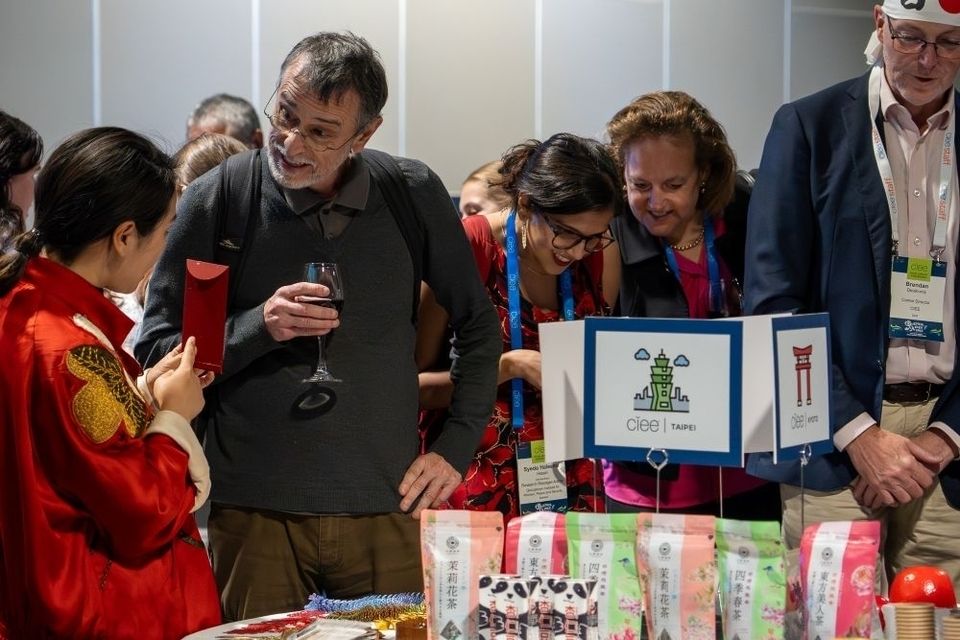
The day concluded with a lively Meet CIEE Reception, where attendees connected with CIEE Center Directors from around the world. Guests enjoyed Argentine hospitality while learning about innovative local initiatives and cultural experiences available across CIEE’s global network.
